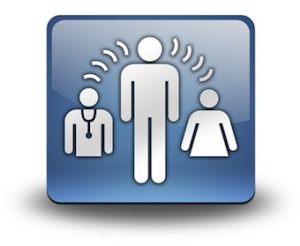More than words: How translators and interpreters are saving lives
Medical Pharmaceutical Translations • Aug 10, 2015 12:00:00 AM

When I write about translators and interpreters on this blog, it’s usually regarding some abstract issue or debate among them or an interesting story or conundrum. But there’s another dimension to these professions. Sometimes translators and interpreters can save lives.
Here’s one example: When medications become available internationally, someone has to translate the information brochures that go with them. And the translation has to be perfect, or else serious health issues or even deaths could result. I’ve written before about just how challenging this can be, but the more I think of it, the more grateful I become that we have some skilled medical translators out there!
Interpreters also have their role in helping people with getting and communicating about medical care. Not only is their presence in hospitals or doctor’s offices an essential part of clear communication between healthcare providers and patients –did you know that more and more 911 emergency dispatch centers are also using or looking for interpreters? El Paso, Texas’s emergency dispatch, requires all operators to speak both English and Spanish fluently, as they have an equal number of calls in both languages. In other areas of the United States, an on-call interpreter service is contacted when someone who doesn’t speak English phones in with an emergency. These interpreters are available 24/7 and are contacted once a day on average by many dispatch services.
What about an area where numerous languages are spoken? In all European Union countries, as well as some non-EU neighboring nations, if you dial 112 in an emergency, you can not only get help in the local language, but also in English and sometimes in any additional languages spoken nearby. The operators will get a full understanding of the situation and then contact local emergency services with information about what’s going on and how to help. It’s not a perfect system, since it doesn’t cover every language, but it’s still made a significant impact: 112 emergency operators deal with 6 million calls a year.
Translators and interpreters are now helping law enforcement in another way, too. Last year, I wrote about the awful case of Deisy Garcia, who, along with her two young daughters, was brutally murdered by her husband. Garcia had reported his violent tendencies and the fact that she believed he was going to murder her and their children, but the report she’d given police was in Spanish, and was never translated. Thanks to a lawsuit that ensued, tragedies like this one hopefully will be prevented; the state of New York now requires all police reports to be immediately translated into English, or for an interpreter to be found for on-the-spot translation.
Translators and interpreters don’t just help with local emergencies. Take the organization Translators without Borders (TWB), whose volunteers go to disaster areas around the world. Most recently, TWB was present in Nepal after the devastating earthquakes there. The translators worked with other humanitarian groups to translate documents and Twitter messages that informed locals about everything from first aid and health advice, to where to go online to look for missing family members.
Like languages themselves, translation and interpretation are often surprising. Not only do translators and interpreters have an effect on our everyday existence when it comes to things like information, business, politics, and entertainment; their way with words can be what stands between someone’s life and death.
#translations #medicaltranslations #interpreters #TranslatorswithoutBorders #911 #aiatranslations
